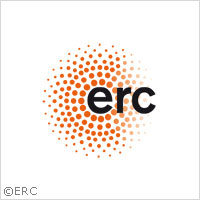ERC puts forward recommendations on bolstering the ERA
The Scientific Council of the European Research Council (ERC) has responded to the European Commission's Green Paper on the relaunch of the European Research Area (ERA) with five recommendations. In a paper requested by EU Science and Research Commissioner Janez Potocnik, the Scientific Council recommends that the European Commission: - implement fully and properly an autonomous ERC according to the established legislation; - extend the principles of autonomous management and governance to other areas; - increase research resources in Europe; - improve the efficiency and complementarity of European research and training schemes and promote their synergies with robust national programmes; - improve the connections between frontier research and innovation. 'It would be a cruel deception to argue that we are now poised to achieve the professed goal of our becoming the most dynamic knowledge economy in the world,' reads the paper. 'Europe's recent investments are (still) insufficient, and fragmentation calls for the development of new synergies and other innovative initiatives. We must continue to ramp up private and public research investments, provide the necessary research infrastructures, extensively reform the education sector (in particular the university systems) and facilitate Masters-level, doctoral and postdoctoral training.' The Scientific Council is the ERC body charged with setting policy. It comprises 22 members, proposed by an independent selection committee. Autonomy has always been emphasised in discussions on the ERC, and the Scientific Council's autonomy is legally guaranteed under the Seventh Framework Programme (FP7). However, according to the paper, 'there is still some way to go before the ERC operates with the appropriate autonomy'. If the present model does not permit the autonomy expected by the Scientific Council, and 'required for the ERC to continue to be a driving force for quality within the ERA', an alternative long-term solution will need to be agreed following the ERC's mid-term review, says the Scientific Council. Autonomy and independence should also be extended to other areas as they are 'crucial conditions for credibility in science and to its contribution to society's well-being', says the Scientific Council. The paper also recommends action to increase research resources in Europe. The Commission's 'Key Figures' from 2007 on science, technology and innovation show that investment in civil research and development (R&D) as a percentage of GDP varied between 0.39% and 3.86% across the EU. Average spending was 1.84% of GDP compared to 2.67% in the US, 2.99% in South Korea and 3.17% in Japan. 'Without a radical improvement of the financial base of the ERA, most other efforts are likely to only broaden the gaps and differences within the ERA instead of levelling them out,' states the Scientific Council. The ERC's annual budget of €1.7 billion should be doubled at the start of the next framework programme, and a major effort should be made to channel the EU's Structural Funds into infrastructure for research. The Commission should also significantly increase the budget for investment in critical research infrastructures. Differences in funding between EU Member States must also be addressed. Current inequalities are a barrier to researcher mobility as scientists are sometimes unable to accept the local salaries that come with a placement. The Scientific Council also recommends improved efficiency and complementarity between European research and training schemes, and the promotion of synergies with strong national programmes. This could be done by introducing an excellence-based postdoctoral fellowship programme free of rigid mobility requirements, or by supporting programmes run successfully by other organisations, such as the European Molecular Biology Organisation (EMBO). An Erasmus scheme for PhD students would be one possibility. Finally, the paper calls for closer links between frontier research, as funded by the ERC, and innovation. 'Successful translation cannot rely on 'end-of-pipe' solutions,' it states. The Scientific Council recommends following the example of the US, which has placed students well trained in basic research laboratories into industry and R&D labs. PhD theses involving both a basic research institution and an industrial lab could also receive EU support, the paper suggests, adding: 'This would convey a strong message to all Europeans: frontier research can shape the future.'



